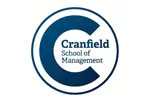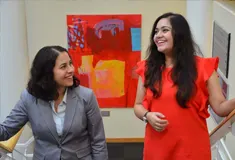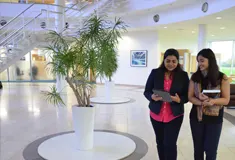A world-leader in management education, research and consultancy for over 50 years, Cranfield School of Management is an exclusively postgraduate business school whose mission is to improve the practice of management. We have a global reputation for developing high-performing leaders in technology and management - encouraging them to transform their organisations and wider society.
Renowned for our strong links with industry, Cranfield is both about business and for business. We are a centre of world-class research, expertise and teaching, providing practical management solutions through a range of activities including leadership, finance, marketing and logistics, and supply chain management.
We work with global organisations including BAE Systems, Royal Dutch Shell, L’Oréal and UNICEF to deliver programmes that will ensure they continue to grow and succeed in increasingly volatile business environments. We work to transform the lives of our students by encouraging self-reflection, creative thinking and the drive to succeed and make a real impact on their organisations.
We are one of an elite group of Schools worldwide to hold the triple accreditation from AACSB International (Association to Advance Collegiate Schools of Business), EQUIS (European Quality Improvement System) and AMBA (the Association of MBAs).
Over 80% of our teaching staff come from industry, bringing real-life business case studies to the classroom and enabling students to learn in a practical environment and apply their learning directly to the workplace.
Cranfield School of Management consistently performs well in the major school and programme specific rankings, reinforcing our position as a top global management school. Rankings (cranfield.ac.uk)
Here at Cranfield, we encourage a curious mindset and strive to empower you to unlock endless possibilities.Empower your curiosity
Accreditation
- First UK university to gain European Logistics Association accreditation
- One of an elite group of triple accredited business schools worldwide (AMBA, AACSB, EQUIS)
Admissions
We welcome applications from candidates of all backgrounds from across the globe and each application is considered on its individual merit. Applications can be made online on the course page for each programme. To study an MBA or MSc programme, applicants should hold a first or second class degree, or the international equivalent. More specific qualifications and the number of years of work experience required varies according to each programme. More detailed entry requirements can be found on the course pages.
Our Admissions Team will be happy to review your experience and background before you apply. Simply fill in a few details on our eligibility checker and we will come back to you within three working days.
Funding your degree
Whether you are a UK-based student or an international student, we provide information, advice and a range of online tools to help you fund your studies comfortably. More information about our funding options online.
Scholarships
We greatly value the experience and diversity of our thriving international community of students alongside our pool of UK based nationals. Our scholarships are designed to support and attract the best quality students from a wide range of countries both home and abroad, so that we can secure the best possible mix of individuals within our MSc cohorts in the next academic year. Find out more about our generous and competitive scholarship opportunities of upto 20%: NEW: Cranfield School of Management Scholarships
Contact details
For more information on our programmes and admissions process, call us on +44(0)1234 758081 or fill out an online enquiry form and we will come back to you.
Location
Cranfield School of Management
College Road
Cranfield University
MK43 0AL
Bedfordshire
Milton Keynes and Bedford train stations are a 15 - 20 minute taxi journey from Cranfield.
Email: [email protected]
View Online Prospectus 2022/23
Take a virtual tour of Cranfield at https://virtualexperience.cranfield.ac.uk/
Social Media

























